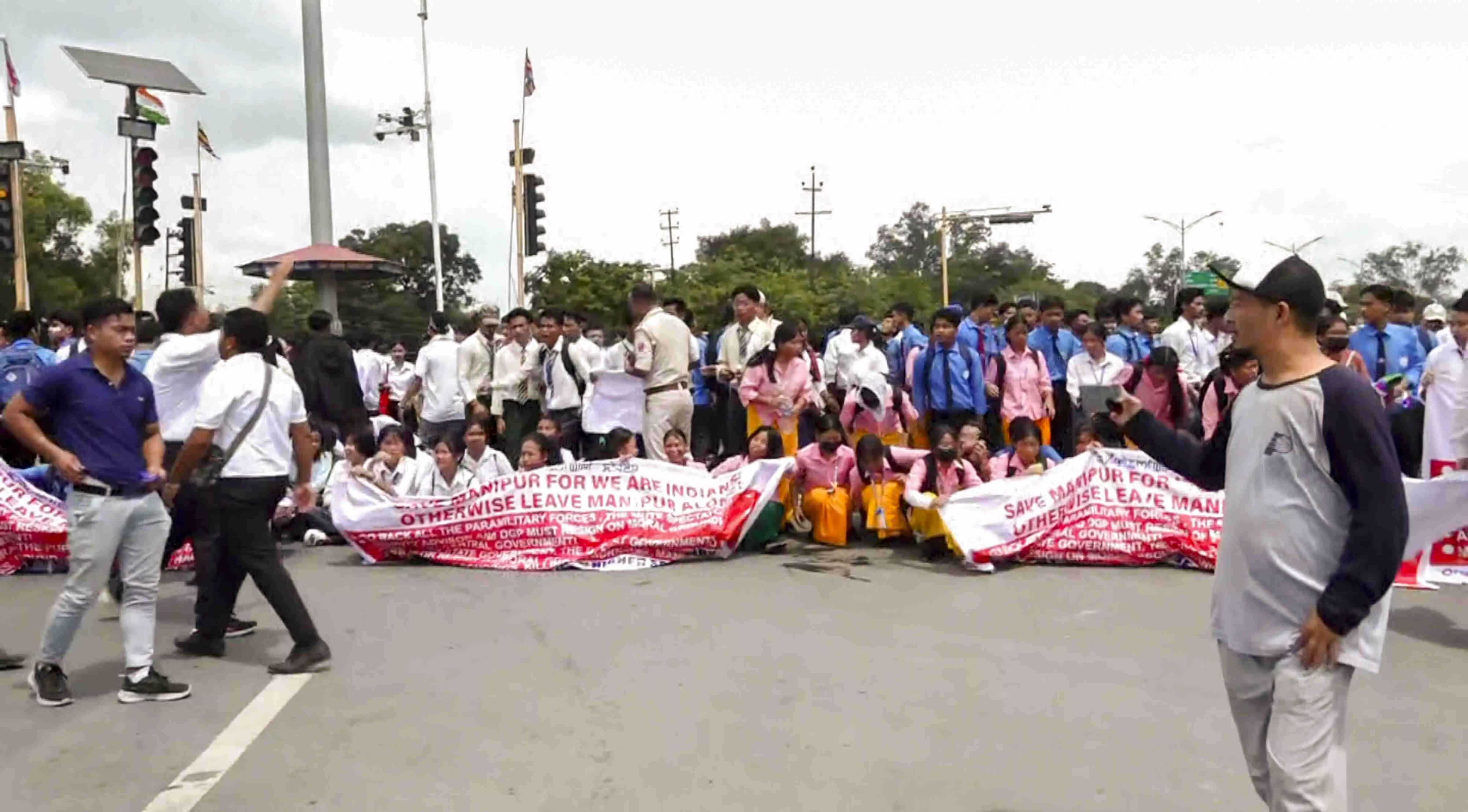Glaring indifference

Manipur started ‘burning’ 16 months ago, and very little efforts seem to have been made towards dousing the flames to date. The result is that the Northeastern state continues to be in high-intensity turmoil. The moot question is: in a country whose national leadership is celebrated as having the potential to mediate in the fiercest of geopolitical conflicts, globally, why is a tiny state left to linger in the realm of chaos and destruction for so long?
The answer to this question is not simple. It could be, in fact, an amalgamation of several disturbing factors. Is the Kuki-Meitei gulf unbridgeable in the state? Certainly not, no conflict is unresolvable. So, what stops the state from putting an end to the violence—its inability or inaction? Whatever be the answer, the state leadership has to be held accountable and answerable. Be it inaction or inability, it is a direct result of the state leadership’s alleged bias in favour of the Meitei community (read against the Kuki community). If the impartiality of an entity entrusted with the resolution of a conflict is itself shrouded in ambiguity, there is nothing much positive that can be expected. Worsening the prospects are recurrent waves of violence that keep tormenting the state occasionally. Recently, the death of at least five people in Jiribam district nudged the state administration to revoke the relaxations on curfew in certain parts of the state. The incident has also triggered a harsh rebuke from the opposition parties. The Indian National Congress has demanded the immediate dismissal of Chief Minister N Biren Singh, and asked the Centre to take charge of the state’s security situation. The demands are not new but quite reasonable. It is unclear as to why the Centre has failed to act even in the wake of an extraordinarily volatile situation! The Centre’s silence is inexplicable and unjustifiable at a time when the conflict continues to claim lives and fuel deep-seated ethnic tensions. The apparent indifference of the Central leadership provides credence to the arguments of naysayers who allege that despite 77-year-long integration of the Northeast in independent India, the focus on the concerns of northeastern people remains shadowed by prejudices. It is not a reality, of course. Since independence, Indian leaders have made significant efforts to prioritise the grievances of the northeastern people as part of the Indian mainland. This priority, however, must be seen and felt consistently.
Efforts to end the violence in Manipur have to be high on the agenda of both state and Central governments. The violence has claimed over 200 lives and displaced thousands, yet the government has seemingly struggled to find a solution. The use of sophisticated weaponry, including drones, has further aggravated the conflict. The Congress' call for the Centre to take charge of the security, thus, seems genuine and reflects the perceived ineptitude of the state administration. With student protests demanding accountability, and the imposition of curfews in key districts, the unrest has become a glaring example of how mismanagement can exacerbate already volatile situations. The violence has now spread beyond Manipur’s borders—threatening the stability of the entire Northeast region. The security situation has reached a point where Central intervention is no longer just an option but a necessity. The deployment of additional forces and the imposition of stricter curfews may provide temporary relief, but without addressing the underlying causes of the conflict, the violence will persist. The Centre must take charge of the security apparatus in Manipur and work towards a comprehensive peace plan. Both communities need to be brought to the negotiating table, with assurances that their interests will be protected. The issue of land rights, in particular, must be addressed with sensitivity. While granting the Meiteis access to hill areas could help ease tensions, this must be done without undermining the rights of the Kukis and Nagas.
Manipur’s prolonged conflict demands immediate and decisive action. The Centre cannot afford to remain passive while the state descends into chaos. The violence has claimed too many lives, and the trust deficit between communities has grown too wide. Strong political will, security interventions, and reconciliation efforts are necessary for the peace to be restored in this strife-torn state. As India looks to strengthen its position on the global stage, it must not neglect its own borders, where peace and stability remain fragile.



